Macron's political earthquake: France at crossroads amidst unprecedented crisis Navigating turbulent waters of Fifth Republic
Macron has suffered a significant defeat in the European Parliament elections and, in response, has dissolved the National Assembly. What lies ahead for France?
In the European elections held on Sunday, Macron's party was overwhelmingly defeated by extreme right-wing parties. Meanwhile, left-wing parties are urgently forming a new "Popular Front" to counter them.
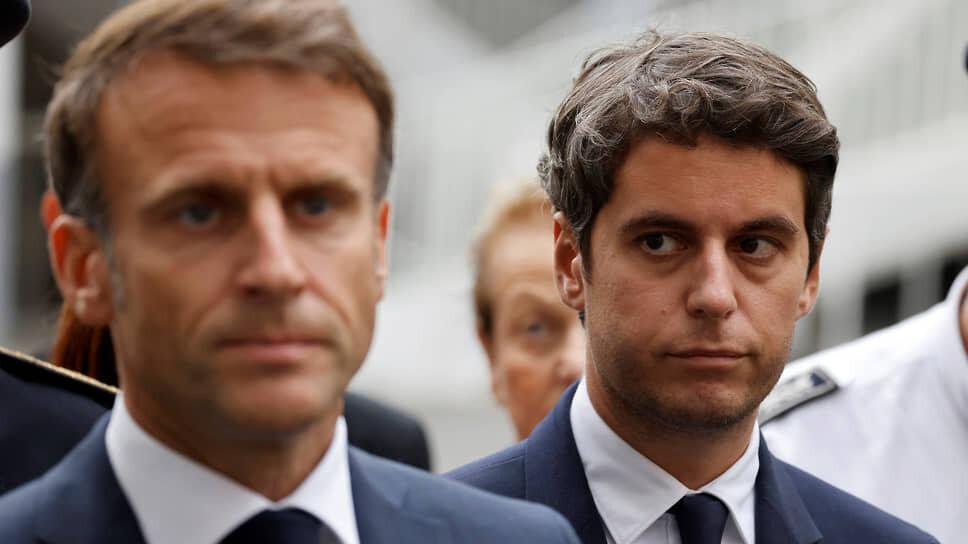
Old Europe tilting right
President Macron's announcement to dissolve parliament came on election night, so unexpectedly that even French Prime Minister Gabriel Attal was caught off guard.
In the European elections held on June 10, the far-right Rassemblement National received 33.1% of the vote, while Macron's centrist Renaissance party garnered only 14.4%. The Socialist Party followed closely with 13.3%. The left-populist party "Unconquered France" received 8.9%, the conservative Republicans 7%, and the French "Greens" also passed the 5% threshold. Another right-wing radical party, Reconquest, led by Marion Maréchal, will also gain deputy mandates. The preliminary predictions of public opinion, given on the eve of the elections, were very accurate.
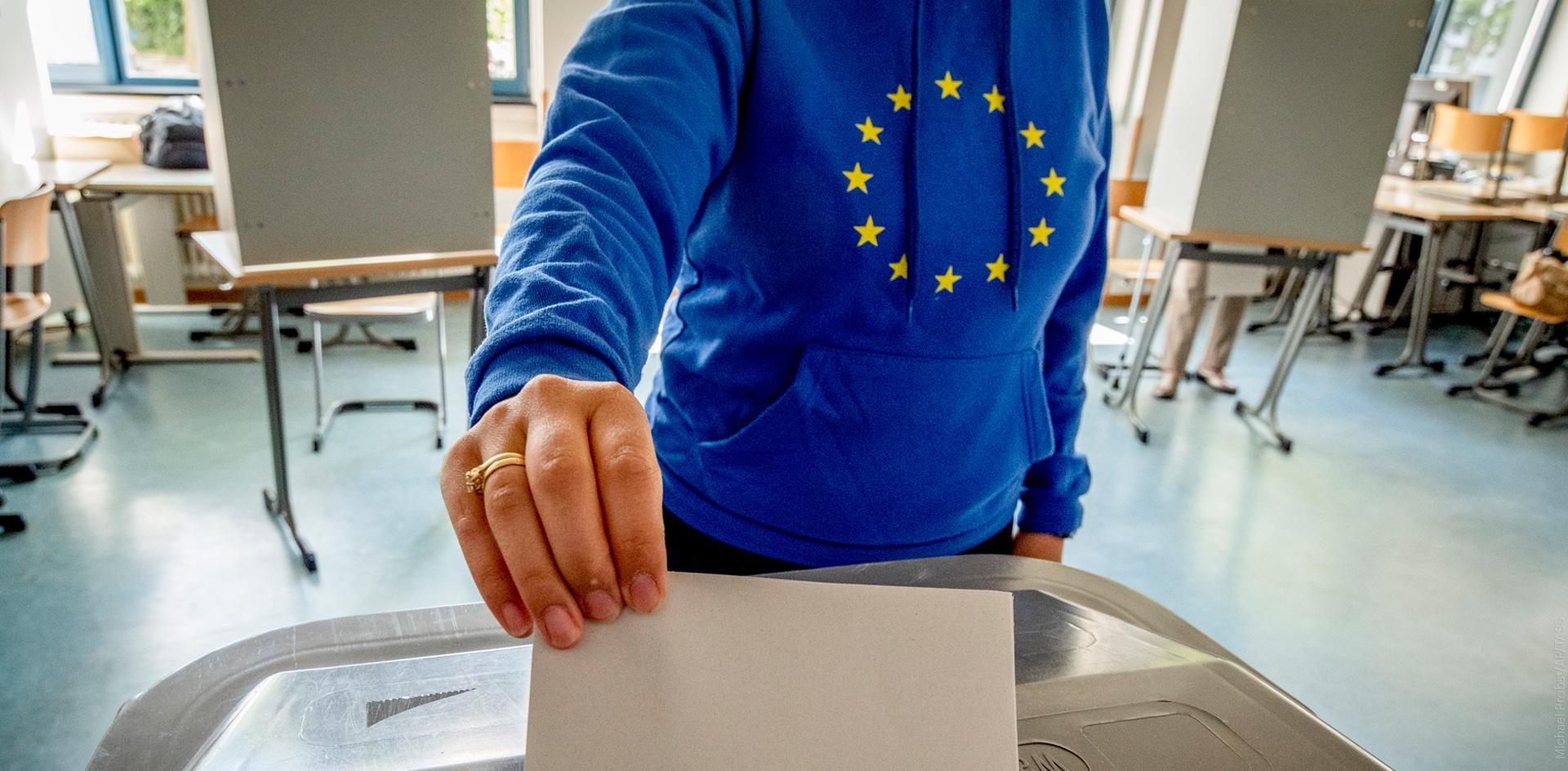
The election results reveal a French society dominated by nationalist and protest moods. These outcomes are seen as a direct consequence of Macron's rule and the EU's general policy. Key issues include raising the retirement age, severe cuts in social guarantees, a sharp drop in living standards, the migrant crisis, the ruin of peasant farms, and foreign policy failures.
This election marks a crushing defeat for Emmanuel Macron himself. With a 52% voter turnout, only 7% of eligible French voters supported the president's party. In working-class neighbourhoods, up to 80% of residents refused to vote, and more than 80% of the population in French colonies boycotted the election. Labour unions argue that the rejection of Macron is primarily due to his commitment to war — both abroad and against workers and the unemployed in France.
A similar trend in these elections was evident in many other EU countries. In Italy, Prime Minister Giorgia Meloni's far-right Brothers of Italy party secured first place with 28.77% of the vote. The left-wing Democratic Party came in second, followed by the populist Five Star Movement in third.
In Austria, the extreme right-wing Austrian Freedom Party won the European Parliament elections, with the Conservatives and Social Democrats sharing second place, and the Greens in third.
In Germany, the right-wing populist Alternative for Germany secured second place with 18 parliamentary mandates. They were outpaced only by the opposition conservatives from the CDU/CSU, who won 30 seats. The Greens, part of the governing coalition, came third with 16 mandates, while the ruling SPD under Olaf Scholz suffered a significant defeat, placing fourth with 14 mandates. The left-wing Die Linke party also earned seats in the European Parliament. In eastern Germany, the right-wing populists took first place with 27% support, and the new left-wing party led by the charismatic Sarah Wagenknecht, with an anti-war agenda, came third in the former GDR.
In the Netherlands, the far-right Freedom Party led by Prime Minister Wilders secured second place.
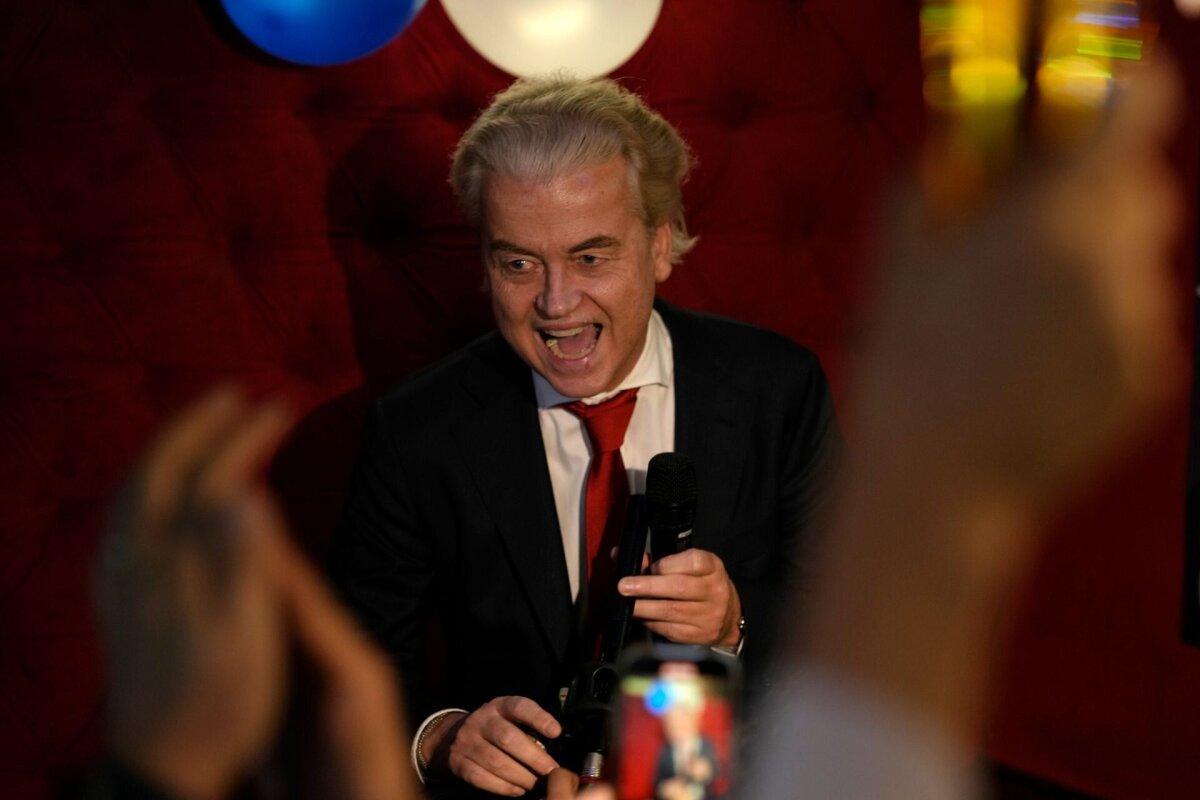
In Spain, the far-right Vox party secured 3rd place with 7 parliamentary mandates, trailing significantly behind the Popular Party with 22 mandates and the ruling left-wing PSOE with 20 seats in the EU Parliament.
Similarly, in Portugal, the right-wing populists from the Chega party also hold 3rd place.
However, the perceived success of the right-wing populists may be somewhat overstated. Preliminary results indicate that this faction holds 58 seats in the European Parliament, placing them 5th out of 7 party groups. The conservative "European People's Party/Christian Democrats" leads with 185 seats, followed by the moderate-left "Progressive Alliance of Socialists and Democrats" with 134 seats, and the liberals of "Renewing Europe" with 79 mandates. The officially extreme right-wing "Identity and Democracy", which includes Marine Le Pen's party, ranks 5th. Notably, the "European Conservatives and Reformers" with 73 seats, currently in 4th place, also encompass right-wing populist elements, albeit with a more moderate stance. Previously led by the Brothers of Italy party, which has roots in the right-wing National Alliance, this faction now comprises 141 right-wing populists in total, solidifying their 3rd place position in the European Parliament.
Besides social issues and the migrant crisis, another significant factor driving the unprecedented rise of the far right in the EU has been the war in Ukraine. Ironically, despite their generally Atlanticist stance, far-right parties have consistently supported military agendas in the European Parliament. However, they also recognize the anti-war sentiments prevalent among many Europeans who fear the spread of armed conflict. Consequently, they sometimes ambiguously advocate for an early end to hostilities in Ukraine, seizing upon this issue to present themselves as advocates for peace.
In an unexpected twist of history, it is now not the moderate left but the extreme right-wing politicians who have fashioned an image of being "peacekeepers" by virtue of their stance on these matters.
The rise of the far-right in France has become a cause for concern among experts, especially as France, along with Italy, Germany, and Spain, now stands as a stronghold for these movements in the EU elections. France, in particular, appears to have become the epicentre of nationalism in Europe.
The French press has not held back in its criticism, describing the defeat of Macron's party as a "political earthquake". President Macron responded swiftly by announcing the dissolution of the National Assembly and scheduling new elections from June 30 to July 7. This decision has been viewed as highly risky by observers. Reportedly, some supporters of Macron reacted with dismay, while Marine Le Pen's supporters greeted the news with jubilation. The move indicates a significant gamble, as Macron's party risks losing its current majority in parliament.
The decision to dissolve parliament is seen not just as a reflection of Macron's personal ambitions, but also as an attempt to maintain political control amid rising opposition. Behind the scenes, French corporate interests and globalists influencing the country's governance are believed to prefer leaders who can effectively manage public opinion and secure support.
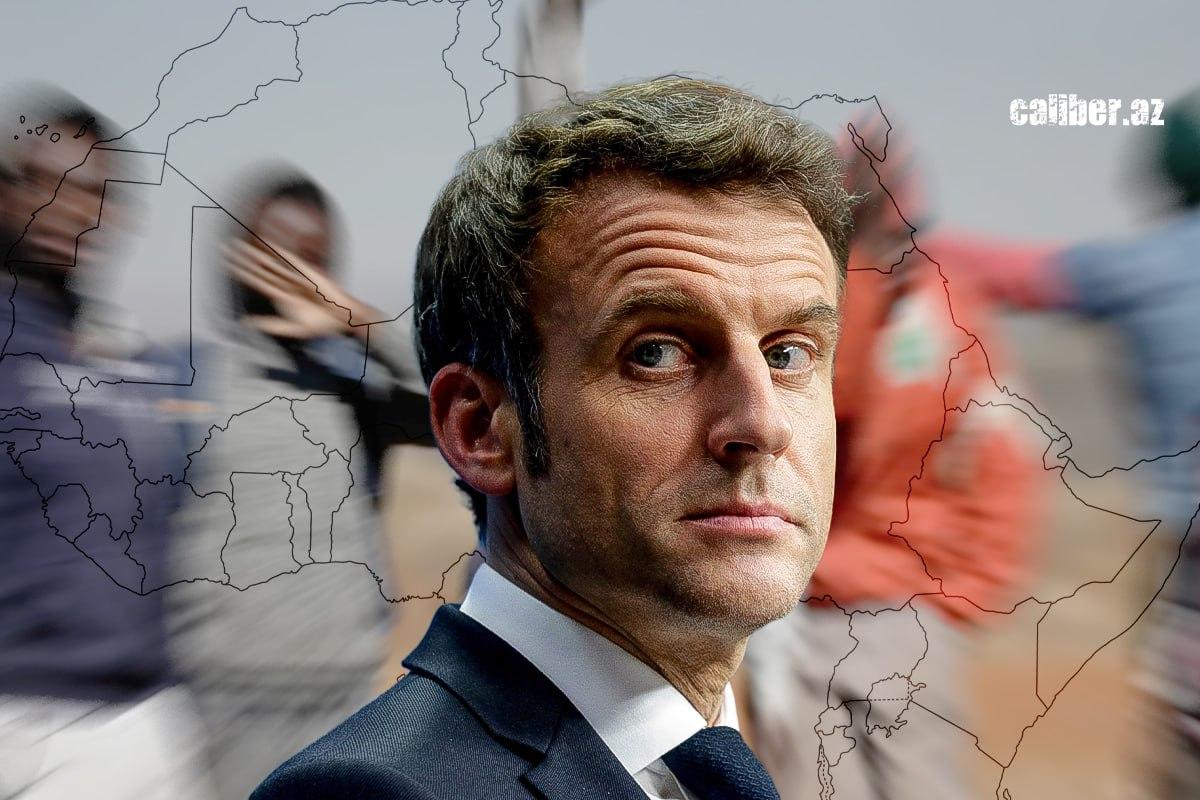
The decision to dissolve parliament and call for new elections was not only supported by President Macron but also demanded by Jordaan Bardella, leader of the extreme right. In contrast, Socialist leader Raphael Glucksman criticized Macron's move as "an extremely dangerous game". On the other hand, Jean-Luc Mélenchon, head of the far-left "Unconquered France", welcomed the announcement, asserting that Macron lacks legitimacy to continue his policies and participate in what he perceives as a system of widespread social injustice.
"Popular Front 2.0"?
Amidst these political tensions, there are efforts underway to unite the left-wing opposition under the banner of a new "Popular Front 2.0". This echoes the historical alliance of the Popular Anti-Fascist Front in the 1930s, which thwarted the rise of French fascists. François Ruffin, MP for "Unconquered France", has urged left-wing party leaders to set aside differences and unite against common adversaries, emphasizing unity over internal conflicts.
Fabien Roussel, leader of the Communist Party, aims to prioritize social policies such as wages, purchasing power, and wealth distribution in the upcoming political discourse. However, expectations remain low that Macron will address significant social guarantees for ordinary citizens, especially after he decides to raise gas prices by 12% immediately following the election loss.
On June 10, leaders from the Socialist Party, French Communist Party, Ecologists, and "Unconquered France" signed a coalition agreement named the "Popular Front", marking a significant step towards consolidating leftist forces ahead of the upcoming elections.
Despite efforts to forge unity, divisions persist among left-wing factions within the coalition known as the Popular Front. Recently, Raphael Glucksman's Socialists have signalled potential withdrawal from the alliance unless there is explicit support for military aid to Ukraine. Nevertheless, this left-wing bloc emerges as a significant alternative to both the faltering Macronists and the controversial far-right in current French politics.
In 2022, a Left coalition known as "Nupes" achieved success by securing 150 parliamentary seats, but internal disagreements eventually led to its dissolution. Speculation about future alliances between the left coalition and Macron's centrists remains muted, while predictions suggest Macron may propose constitutional reforms enabling a potential reelection bid in 2027, positioning himself as a unifying force against the far-right, akin to a "Napoleon IV".
Speculation suggests that Macron's decision to dissolve parliament may have been coordinated as early as May, in consultation with the Gracchi, an informal group representing France's elite from business, politics, and culture. This shadowy organization has reportedly had ties to Macron since his tenure at Rothschild Bank starting in 2008.
Concurrently, calls for unity are also being voiced within the right-wing camp. Leaders of the Reconquista movement, Eric Zemmour and Marion Maréchal, emphasize the necessity of unity to secure victory for the "National Union" candidate in the 2027 presidential elections.
François Ruffin of France Unconquered calling Macron "crazy" underscores the intense political climate in France. The far-right parties garnered approximately 36-38% in the European Parliament elections, and with potential support from the conservative "Republicans," they could reach up to 43-45%. In contrast, the Left and the Greens collectively hold about 26%. However, uniting with centrists seems unlikely at this stage.
The "Republicans" have declared their intention to contest the elections independently, adding intrigue to the upcoming political landscape. French voters tend to send eurosceptic representatives to Strasbourg while voting based on different criteria domestically. Moreover, it's uncertain if the extreme right can expand its voter base beyond its current reach. Nevertheless, the perceived far-right threat might mobilize potential abstainers from previous elections, particularly among left-wing or centrist voters, to participate in the upcoming polls.
The strategy of rallying liberals against the extreme right has proven effective in the past, aimed at preventing Rassemblement National from securing the largest faction in the French parliament. However, the likelihood of Rassemblement National achieving this feat remains high, potentially bolstering the authority of the Fifth Republic's president.
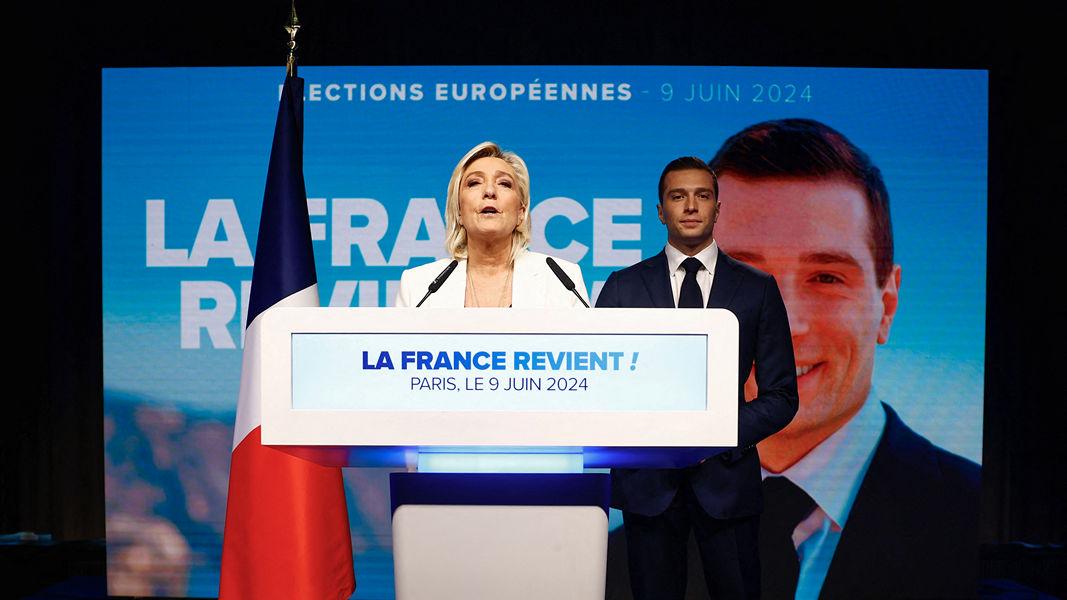
Nevertheless, securing a parliamentary majority or forming alliances outside their traditional support base presents a formidable challenge for the far-right. Even if Rassemblement National were to succeed in gaining significant seats, appointing Marine Le Pen as prime minister would be a complex endeavour. Le Pen herself faced legal challenges in 2015 when she was prosecuted for likening Muslim street prayers to the "Nazi occupation". Despite efforts to rebrand and portray themselves as a respectable European political entity, accusations of right-wing radicalism have often been replaced with critiques of Islamophobia, as noted by BBC journalists in recent years.
Certainly, the Fifth Republic of France is facing a period of profound external and internal crises reminiscent of historical moments such as the Algerian colonial war in the 1960s and the student demonstrations of May 1968. These crises appear to present unprecedented challenges for the Elysée Palace, with no clear and swift solutions readily available.








